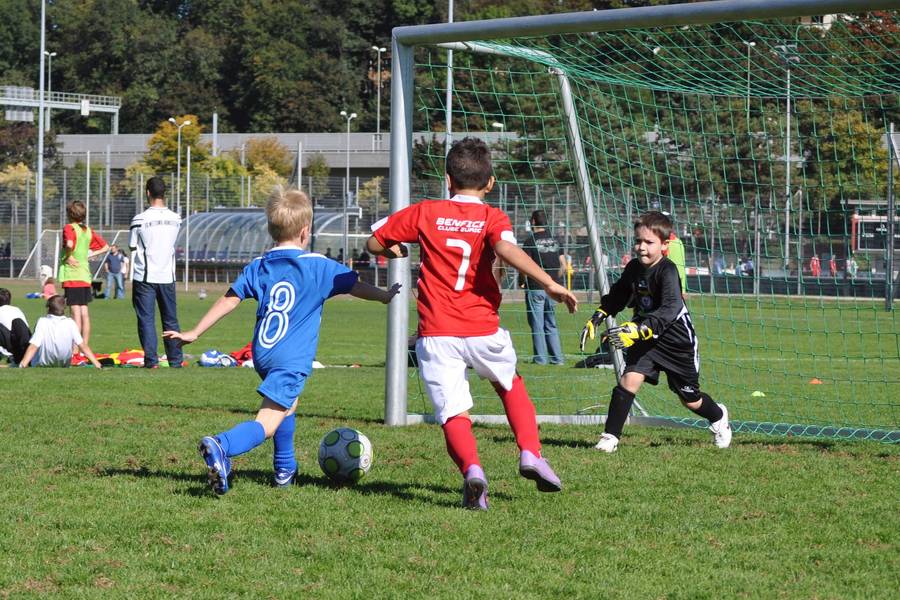
At parks and playing fields across Britain every weekend, literally thousands of amateur footballers lace up their boots and take to the pitch. Some are chasing league titles, others simply enjoying the chance to have a kickabout with mates. But how much does winning really matter at grassroots level, and what's the relationship between victory and enjoyment?
The beauty of grassroots football lies in its accessibility and community spirit. For many players, the Saturday or Sunday match provides an escape from daily pressures, a chance to exercise and valuable social connections. These benefits exist regardless of the scoreline which suggests that winning isn't everything.
However, competition is woven into football's DNA. In even in the most casual kickabout in the park, players naturally want to score goals and succeed. This competitive drive often enhances rather than diminishes enjoyment, giving matches meaning and creating memorable moments. The shared celebration after a last minute winner or the collective determination to bounce back from defeat can strengthen team bonds and create lasting friendships.
As with just about everything in grassroots football, the key lies in striking the right balance. When winning becomes the sole focus, it can lead to unnecessary pressure, reduced playing time for less skilled players, and behaviour that contradicts the spirit or purpose of grassroots football. Teams that maintain the right perspective, celebrating victories when they arrive while remembering why they started playing in the first place, often create the most positive environment for all involved.
Perhaps the most successful grassroots teams are those who understand that winning and enjoyment aren't mutually exclusive. They recognise that improvement, teamwork and competitive spirit can coexist with inclusivity, friendship and fun. After all, there's nothing quite like the satisfaction of a well earned victory celebrated with teammates who've become friends.
While winning *does* matter, it should never overshadow the fundamental joys of grassroots football, the pre match banter, the post game analysis in the changing room and the simple pleasure of playing our wonderful game.
If winning does matter though, how do you improve your chances of gaining positive results? Creating a winning culture in football goes far beyond simply focusing on victories and defeats. It's about establishing a foundation of values, behaviours and attitudes that promote both individual growth and team success. Whether you're coaching young players just starting their football journey or managing an adult team, building the right culture is crucial for long term success and it starts with having clear values and a compelling vision.
Your team's values should reflect not just what you want to achieve on the pitch, but how you want to achieve it. These might include respect, commitment, resilience and teamwork. Make these values explicit, write them down, discuss them with players and parents and most importantly, demonstrate them through your actions as a leader. A strong vision gives your team direction and purpose and it should be ambitious yet achievable, focusing on both performance and development.
In grassroots football, developing a growth mindset is perhaps more important than in any other setting. This means creating an environment where players understand that mistakes are learning opportunities, not failures, where effort and improvement are celebrated as much as natural talent and where challenges are embraced rather than avoided. Every player should believe they can
develop and improve. This mindset is reinforced by regularly highlighting examples of player improvement through effort, discussing learning moments during team talks and creating training sessions that push players slightly out of their comfort zones while maintaining their confidence.
Success in building team culture often comes down to setting and maintaining clear standards. These should cover everything from training and match day protocols to behavioural expectations. Players need to understand what's expected in terms of punctuality, preparation, training intensity and focus. They should know how to conduct themselves on match days, how to care for balls & equipment and how to communicate effectively. Beyond these practical aspects, behavioural standards are equally important, showing respect for teammates, officials and opponents.
A winning culture thrives in a positive learning environment. This doesn't mean avoiding criticism or challenging players, it means creating an atmosphere where players feel safe to express themselves and try new things. Feedback should be constructive and specific, success should be recognised and celebrated and team members should support and encourage each other. Competition should be
healthy and purposeful and everyone should have a role and feel valued. This environment is created through carefully structured training sessions that include both challenging exercises and opportunities for success, using small-sided games and competitive drills that promote problem solving and decision making while maintaining high engagement levels.
Strong relationships are the glue that holds team culture together, and building these relationships requires intentional effort. Coaches need to invest time in understanding each player's motivations, challenges and aspirations. Regular one to one conversations, even if brief chats, can make a huge difference in player engagement and commitment. Team bonding activities outside of regular training sessions, whether social events, community service projects or watching professional matches together, help build camaraderie and strengthen team bonds. For youth teams especially, engaging parents positively in the team culture is crucial. Regular communication, clear expectations and opportunities for constructive involvement can turn parents into valuable allies.
A winning culture also requires accountability at all levels. Players must take responsibility for their actions and performance, while leaders should emerge naturally through positive behaviour and effort. Team members need to hold each other to account on agreed standards and coaches must acknowledge their mistakes and learn from them. Consider implementing a leadership group or captain as advocate where players can have input into team decisions and help maintain cultural standards. This gives players ownership of the team culture and helps develop leadership skills.
Recognition and celebration are vital elements of a winning culture, but it's important to celebrate the right things. Focus on individual and team improvement, displays of team values in action, achievement of process goals and how players overcome challenges and setbacks. Celebrate contribution to team success, not just match winning moments. Create regular opportunities to recognise these achievements, whether through end of session or end of match acknowledgments.
Building a strong team culture takes time and consistent effort. It's important to stay committed to your values and vision, even during difficult periods. Cultural issues need to be addressed promptly and fairly and team standards should be regularly reviewed and reinforced. While approaches may need to adapt based on what works, core principles should remain constant. Remember to celebrate small wins along the way, as cultural change doesn't happen overnight.
The most successful grassroots teams aren't always the ones with the most talented players, they're the ones with the strongest cultures. By creating an environment where players can develop both as footballers and as people, where effort and improvement are valued alongside results and where strong relationships and positive behaviours are the norm, you can build something truly special. Culture isn't something that just happens, it's something you build, day by day, decision by decision. Starting with clear foundations, maintaining high standards and staying committed to your values, will ensure you’re well on your way to creating a winning team culture that stands the test of time.


















